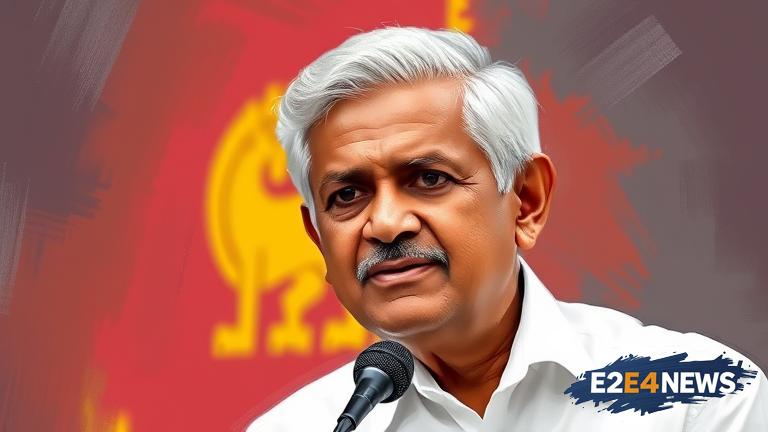Former Sri Lankan President Ranil Wickremesinghe has been granted bail by the country’s courts, marking a significant development in the ongoing investigations into alleged corruption and mismanagement during his tenure. Wickremesinghe, who served as the President of Sri Lanka from July 2022 to May 2023, has been facing intense scrutiny over his handling of the country’s economic crisis. The bail grant comes as a relief to Wickremesinghe, who has been cooperating with the investigations. The former President has denied any wrongdoing and has maintained that he is innocent of all allegations. The investigations into Wickremesinghe’s tenure are part of a broader effort by the Sri Lankan government to root out corruption and ensure accountability. The country has been grappling with a severe economic crisis, which has led to widespread protests and calls for reform. Wickremesinghe’s government was criticized for its handling of the crisis, with many accusing him of mismanaging the economy and failing to address the needs of the people. The former President has also been accused of abusing his power and engaging in corrupt practices. Despite these allegations, Wickremesinghe remains a prominent figure in Sri Lankan politics, and his bail grant is seen as a significant development in the country’s ongoing efforts to address corruption and ensure accountability. The investigations into Wickremesinghe’s tenure are ongoing, and it remains to be seen how the case will unfold. The Sri Lankan government has pledged to ensure that all those responsible for corruption and mismanagement are held accountable, and the bail grant is seen as a step towards achieving this goal. The country’s judiciary has also been praised for its independence and impartiality in handling the case. The bail grant has also sparked debate among Sri Lankans, with some hailing it as a victory for justice and others criticizing it as a sign of leniency towards the former President. The case has also drawn international attention, with many watching closely to see how Sri Lanka will address corruption and ensure accountability. The country’s economic crisis has had far-reaching consequences, including food and fuel shortages, and the government has been working to address these issues. The investigations into Wickremesinghe’s tenure are part of a broader effort to restore confidence in the government and ensure that the country is on a path towards recovery. The former President’s bail grant is seen as a significant step towards achieving this goal, and it remains to be seen how the case will unfold in the coming weeks and months. The Sri Lankan government has also been working to implement reforms and address the root causes of the economic crisis. The country’s parliament has been debating a range of measures, including constitutional reforms and anti-corruption legislation. The government has also been working to strengthen the country’s institutions and ensure that they are independent and effective. The bail grant is seen as a positive development in this context, and it is hoped that it will help to restore confidence in the government and the judiciary. The case has also highlighted the importance of accountability and the need for those in power to be held responsible for their actions. The Sri Lankan government has pledged to ensure that all those responsible for corruption and mismanagement are held accountable, and the bail grant is seen as a step towards achieving this goal. The country’s citizens have been calling for greater accountability and transparency, and the investigations into Wickremesinghe’s tenure are seen as a positive step towards achieving this goal. The case has also sparked debate about the role of the judiciary in ensuring accountability and the need for greater transparency and accountability in government. The Sri Lankan government has been working to address these issues, and the bail grant is seen as a significant development in this context.
